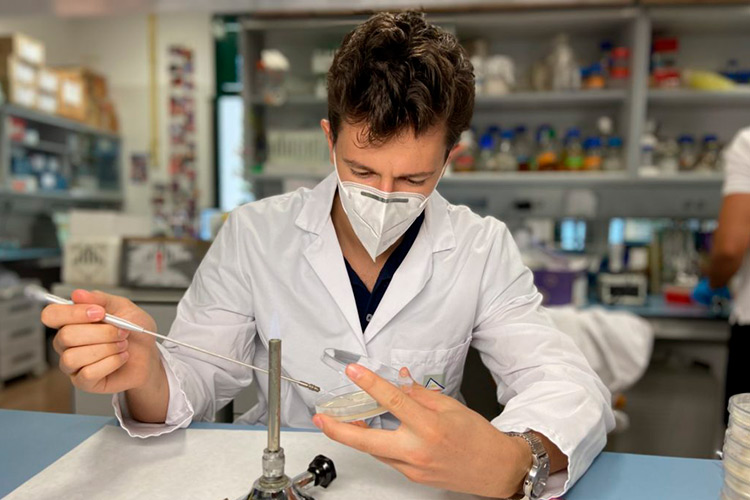Hidralia and its Aquae Foundation promote research to study the viruses and bacteria present in drinking water networks
Hidralia and its Aquae Foundation extend its Industrial Doctorate Program with a Doctorate in Metagenomics, which it develops together with the University of Alicante and Labaqua, and which will study for the next three years the composition of biofilms (microorganisms that adhere to living or inert surfaces ) in drinking water distribution systems. This research will also analyze the response of these biofilms to different treatments, exploring more bio-sustainable disinfection alternatives.
Hidralia and its Aquae Foundation extend its Industrial Doctorate Program with a Doctorate in Metagenomics, which it develops together with the University of Alicante and Labaqua, and which will study for the next three years the composition of biofilms (microorganisms that adhere to living or inert surfaces ) in drinking water distribution systems. This research will also analyze the response of these biofilms to different treatments, exploring more bio-sustainable disinfection alternatives.

This PhD uses metagenomics techniques (study of the genomes of the entire microbial community of a sample) that allow the analysis of microorganisms that cannot be detected by traditional culture-based microbiology assays.
It is estimated that between 100,000 and a million microorganisms, some of them potentially pathogenic bacteria, circulate for every liter of drinking water in the pipes. 95% of these microorganisms develop forming biofilms, which increases their survival capacity and, therefore, greater resistance to the biocides used to eliminate them.
As Valentín Gangloff, the doctoral student awarded a scholarship to carry out this research, explains, “thanks to this research we will be able to know, among other things, how these microorganisms affect the quality of the water we drink or how are the viruses that are present in these biofilms and in the water where they are and that can affect our health".
Biofilms in drinking water supply pipes can cause the presence of potentially pathogenic bacteria that could function as vectors for disease transmission, altering the smell and taste of the water, corroding the surfaces of the pipes, reducing the hydraulic capacity of these or forcing the use of larger amounts of biocides (chloros or chloramines) due to the decrease in their action.
How to remove biofilms?
During the first year of this Doctorate (2020-2022), the microbial communities existing in large drinking water networks (hospitals or industries) will be analyzed at a metagenomic level, both those found in biofilms, attached to the surface of the internal part of pipes, such as those that live freely in water.
For this, samples of water and biofilms will be taken, both treated and not treated with biocides, and their genetic material will be sequenced. After this analysis, the microbial composition of the biofilms will be associated with the physical-chemical characteristics of the water and the materials of the conduction systems, carrying out statistical studies that allow their presence to be correlated with a possible impact on water quality.
It will be in the second year when the viruses that exist both in water and in biofilms are studied. “Most of them will be pathogens of the microbes that make up the biofilm, but there may also be viruses related to humans that, when circulating in water, get trapped in the biofilms. For this reason, we want to study the role of these viruses as agents that help in the formation of biofilms and also as agents that influence their disintegration", Gangloff says. In this second phase, viruses that may have an impact on human health will also be characterized.
The third and final year of this research will address biofilm prevention and/or elimination strategies and “phage therapy” (using viruses to kill bacteria) will be explored as a strategy to end them. "The objective is to design an action plan to use viruses as biocontrol agents", highlights the author of the thesis 'Use of metagenomics in environmental management: control and characterization of biofilms in water networks'.
